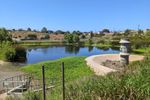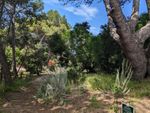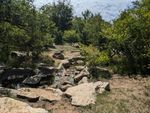Think of it as an iterated monkey’s paw wish.
The Lathe of Heaven takes us through multiple possible versions of Portland as George Orr, a man whose dreams can change reality, is directed by his therapist to solve the world’s problems.
It doesn’t go very well.
- George has no control over how his dreams accomplish the specific change.
- Everything is connected. Pull one strand and another comes along with it.
- It’s all tied to Dr. Haber’s idea of which problems to tackle, what solutions are acceptable…and which people are expendable.
But while the stakes are global, the story stays laser-focused on three people: George Orr himself, increasingly desperate to take control of his life and his dreams. Dr. Haber, who keeps pushing for more control over the world. And Heather Lelache, a biracial lawyer who becomes aware of some of the changes to reality, but faces more drastic changes than either of the two men at the center of the maelstrom.
Perspective
It’s interesting to read this now, roughly 20 years after it was set and 50 years after it was written. What global problems were people worried about at the time? The eternal ones like war and racism, of course. But they were already starting to worry about the greenhouse effect. Future Portland is hotter than it used to be, and there are massive farms east of the Cascades, and there are droughts in new places… This isn’t a lucky guess, this was just following the data. And I couldn’t help but think about people I know in the area and their experiences with heat waves and wildfire smoke.
On the other end of things, the real world hit the 7-billion mark without the Malthusian catastrophe predicted by The Population Bomb.
And then there’s the chilling moment when George reveals the real first time he dreamed effectively.
Spoilers
Lelache is literally erased when Dr. Haber decides to eliminate racism, and George dreams a world where everyone’s gray. And when Orr tries to re-write her into reality, he’s only able to define her in terms of her relationship to him, leaving her a shadow of her former self. It’s not until he finally gets Haber to stop meddling and the universe resettles into a form with actual diversity that she’s able to be herself again. Two white men “solving” a problem without consulting the people it affects the most.
Dr. Haber spends a lot of time insisting that the story is contrasting active and passive philosophies, Western vs. Eastern, fix the problems vs. let them be. But the story itself pushes back against this as a misunderstanding of Eastern philosophy and a much narrower vision of what it means to be active. While the solutions George dreams sometimes come with terrible costs, his dreams are at least working within possibilities. Some of the simple solutions, like retroactively creating a lottery for access to cabins in national forests, or changing the alien invasion to an alien first-contact gone wrong, show this more clearly. When Dr. Haber tries to dream a new world himself, it’s a disaster, because he’s not looking at the connections between things. He still thinks he can swap out exactly what traits he wants, and the side effects are just the results of from George’s “inferior,” “passive” personality.
While it’s true that George tends to go with the flow, that’s in part because things have changed so much around him. And because he wants to understand the possible consequences before he acts. He seeks out a lawyer before he tries just avoiding Dr. Haber. He keeps seeing Haber afterward because he knows if he refused, he’ll just be forced to anyway. He seeks out a way to bring Heather back, even if he isn’t able to do so fully. And in the end, when reality starts splintering, he’s suddenly decisive, because there’s no choice he can make that would be worse than letting the universe fall apart around him.
That’s what Dr. Haber doesn’t understand about George, and the Aldebaranians, and philosophy: It’s not just passively accepting what is. It’s about accepting what is, and acting within that.
Notes
I’m vaguely amused that all the timelines have Mt. St. Helens intact, but Mt. Hood has erupted in several. It’s not like there was any indication in 1971 that a specific volcano would go off in the area, and Hood being closer to the Portland setting is a more dramatic choice.
In other news, now I want to watch Dark City again. Not remotely the same story, but there are a few moments that made me think of it, and I’m sure the writer and director had to have been familiar with this story.


